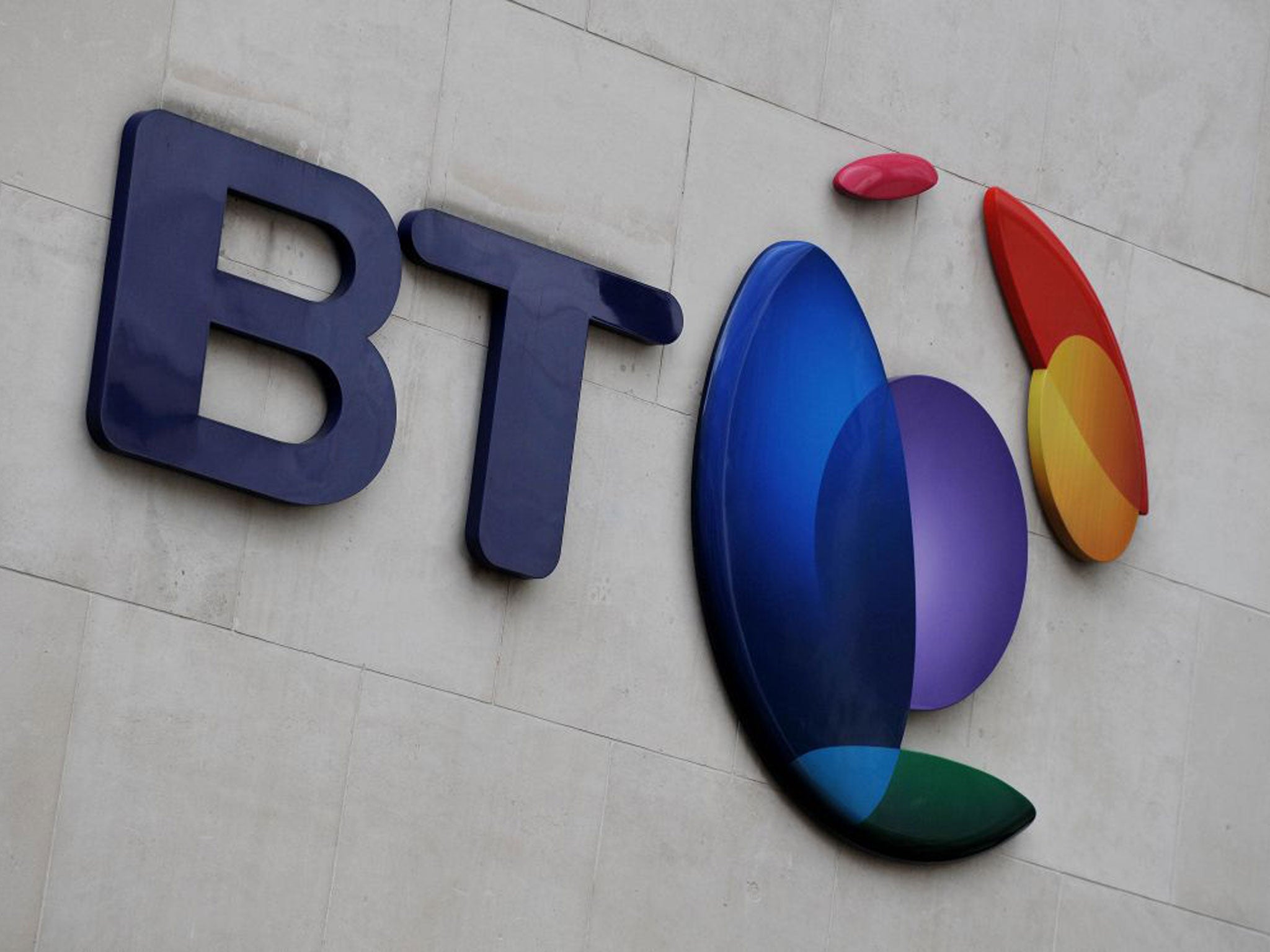Mobile firms fight to woo BT in £10bn takeover talks
BT in control as O2 and EE fight to team up against Sky and Vodafone

BT is in talks to buy either O2 or EE in the second dramatic move by Britain’s biggest telecoms company in as many years, after its successful entry into pay-TV with BT Sport.
Analysts said BT was “in the driver’s seat” as O2 and EE, which are each valued at about £10bn, have made separate, rival approaches.
Such a deal could see the foreign owners of the mobile networks taking a 20 per cent stake in BT in return for selling their UK arms.
Both of the mobile operators fear being squeezed out of the growing market for “quad play” as consumers seek to buy all four services – home broadband, home phone, mobile and pay-TV – from one provider.
Video: The latest business news
RBC Capital Markets said the prospect of O2 and EE simultaneously trying to do a deal meant “BT is in the driver’s seat and the risk of overpaying for a mobile asset is reduced”.
BT, with a market value of £31bn, has already announced plans to launch in mobile – completing its quad play line-up as it is already number one in broadband and home phone and now has BT TV too.
But a deal with EE or O2 – respectively number one and two in the UK mobile market by subscriber numbers – would automatically give it huge scale. BT admitted it was “assessing the merits of an acquisition of a mobile network operator” as a means of “accelerating” its launch in mobile.
Vodafone is only the third biggest mobile player in the UK but has deep pockets after banking £84bn from the sale of its stake in the US operator Verizon Wireless and has galvanised the market with its recent quad play plans.
O2, owned by the debt-laden Spanish group Telefonica, and EE, jointly owned by France Telecom and Deutsche Telekom, both lack Vodafone’s financial firepower and its fixed-line fibre broadband network, acquired in 2012 from Cable & Wireless Worldwide.
Vodafone’s growing closeness to the pay-TV giant Sky has increased BT’s sense of urgency – and it also threatens EE and O2 amid industry consolidation. O2, in particular, is a “pure-play” mobile operator after selling its broadband business to Sky in 2012.
BT shares rose 3.7 per cent to 394.1p yesterday as the City welcomed the idea of the FTSE 100 giant strengthening its hand. Paul Marsch, a senior analyst at Berenberg Bank, said: “Strategically, it makes sense for BT and helps Telefonica dig itself out of a hole in the UK after selling its broadband business.”
Analysts at Espirito Santo said the UK was “one of the few European markets” which had not seen demand for quad play so far. But “this could change quickly” with BT’s plans to enter mobile and O2 could “suffer”, which is why Telefonica is looking for alternatives to protect itself, according to Espirito Santo.
Telefonica has said it values the UK market because there is high smartphone and broadband penetration and it is keen to retain a foothold.
O2 chief executive Ronan Dunne maintained last week that he had not yet seen “appetite” for quad play among consumers but was careful to add: “We rule out nothing.”
Espirito Santo suggested that EE’s owners were now looking for the same “escape strategy” as the mobile industry has been suffering from flat revenues while broadband and TV are on the rise. EE and BT have an existing relationship as EE gives access to its mobile network to BT customers under a “white label” agreement.
BT chief executive Gavin Patterson has been emboldened by the success of BT Sport, which he launched last year as he sought to hit back at Sky, which had been poaching broadband customers.
A deal by BT to buy O2’s UK mobile business would see the telecom giant move full circle. Nearly 30 years ago it formed O2’s forerunner, Cellnet, in a joint venture with Securicor. BT bought out Securicor’s 40 per cent stake in 1999, later rebranding it BT Cellnet and spinning it off in 2002. Telefonica bought O2 for £18bn in 2005.
Subscribe to Independent Premium to bookmark this article
Want to bookmark your favourite articles and stories to read or reference later? Start your Independent Premium subscription today.

Join our commenting forum
Join thought-provoking conversations, follow other Independent readers and see their replies